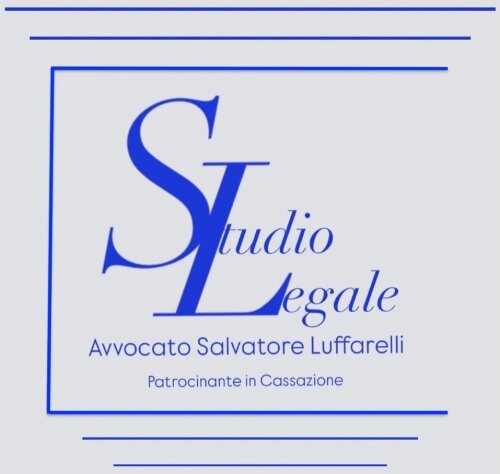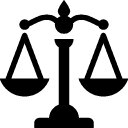Best Faith-Based Law Lawyers in Italy
Share your needs with us, get contacted by law firms.
Free. Takes 2 min.
Or refine your search by selecting a city:
List of the best lawyers in Italy
About Faith-Based Law in Italy
Faith-Based Law in Italy primarily involves the intersection of religious doctrines and the Italian legal framework. Italy recognizes the importance of religious communities, and the Italian Constitution guarantees freedom of religion. However, religious practices must align with public order and the Italian legal system. This area of law often involves the coexistence and interaction between state law and religious traditions, especially with legal matters concerning marriage, education, and religious practices.
Why You May Need a Lawyer
Individuals may require legal assistance in Faith-Based Law due to various reasons. Some common situations include:
- Resolving conflicts between religious practices and state law.
- Understanding rights and obligations in religious marriages.
- Legal issues concerning religious education and upbringing of children.
- Acquiring recognition for religious entities and their legal rights.
- Navigating employment law within religious institutions.
Local Laws Overview
Italy's legal system respects the autonomy of religious communities but imposes certain conditions under the Concordat Agreements, particularly with the Catholic Church, and other religious groups through Intese (agreements) with the state. Key aspects include:
- The concordats and agreements provide a framework for religious institutions to manage their internal affairs.
- Religious marriages must comply with Italian civil law to have legal recognition.
- Religious education in schools is protected, but parents have the right to opt-out for their children.
- Employment within religious entities is regulated under specific norms that reconcile state labor laws with religious doctrines.
- Religious properties are subject to taxation laws unless specific exemptions apply.
Frequently Asked Questions
What is the role of the Italian Constitution in religious matters?
The Italian Constitution ensures freedom of religion and outlines the state's relationship with religious groups. It acknowledges religious instructions within state education while maintaining that all religious institutions are equal before the law.
How does Italy handle religious marriages?
Religious marriages must be registered with the civil registry to be legally recognized in Italy. This process ensures that marriages adhere to both religious protocols and civil law requirements.
Can religious institutions manage their internal affairs autonomously?
Yes, religious institutions can manage their internal affairs autonomously, provided they comply with Italian law and public order regulations.
What legal protections are offered for religious education?
Italy offers religious education in state schools, particularly concerning Catholic instruction. However, parents have the option to exempt their children from these classes.
How are religious properties taxed in Italy?
Religious properties may enjoy tax exemptions if they comply with specific usage conditions. Properties used for commercial purposes are generally subject to standard taxation laws.
What agreements exist between the Italian state and religious communities?
Several agreements, known as Concordats with the Catholic Church and Intese with other religious communities, outline the legal status and rights of these groups in Italy.
What are the rights of parents regarding religious upbringing?
Parents have the right to decide the religious upbringing of their children, including opting out of religious education in schools if they choose.
Are there laws regulating employment within religious institutions?
Yes, employment laws are in place for religious institutions, balancing labor rights with the institution's religious values and norms.
Is it possible for a religious group to obtain legal recognition in Italy?
Yes, religious groups can obtain legal recognition if they meet specific legal conditions and abide by the rules of public order and morality.
How does Italy ensure the freedom of religion?
Freedom of religion in Italy is ensured through constitutional rights, legal frameworks like the Concordats and Intese, and the overall respect for individual and group religious practices within the bounds of national law.
Additional Resources
For additional help and resources, individuals can contact governmental bodies like the Ministry of Interior or seek assistance from organizations such as:
- Italian Catholic Bishops' Conference
- Union of Islamic Communities and Organizations of Italy (UCOII)
- Federation of Evangelical Churches in Italy
- The Jewish Community of Rome
Next Steps
If you require legal assistance in Faith-Based Law in Italy, consider taking the following steps:
- Research and identify a lawyer specializing in Faith-Based Law.
- Prepare documentation related to your legal issue, including any relevant correspondence and records.
- Schedule a consultation to discuss your situation and explore legal options.
- Ensure that your lawyer explains potential outcomes and risks clearly.
- Engage with the legal process in collaboration with your lawyer to ensure compliance with both religious and state laws.
Lawzana helps you find the best lawyers and law firms in Italy through a curated and pre-screened list of qualified legal professionals. Our platform offers rankings and detailed profiles of attorneys and law firms, allowing you to compare based on practice areas, including Faith-Based Law, experience, and client feedback.
Each profile includes a description of the firm's areas of practice, client reviews, team members and partners, year of establishment, spoken languages, office locations, contact information, social media presence, and any published articles or resources. Most firms on our platform speak English and are experienced in both local and international legal matters.
Get a quote from top-rated law firms in Italy — quickly, securely, and without unnecessary hassle.
Disclaimer:
The information provided on this page is for general informational purposes only and does not constitute legal advice. While we strive to ensure the accuracy and relevance of the content, legal information may change over time, and interpretations of the law can vary. You should always consult with a qualified legal professional for advice specific to your situation.
We disclaim all liability for actions taken or not taken based on the content of this page. If you believe any information is incorrect or outdated, please contact us, and we will review and update it where appropriate.
Browse faith-based law law firms by city in Italy
Refine your search by selecting a city.














